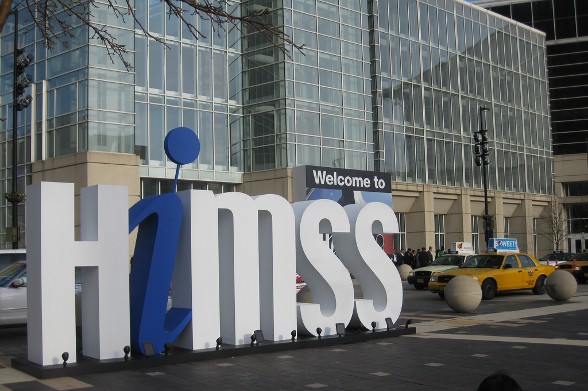
A year after it cancelled its 2020 conference, the Health Information and Management Systems Society (HIMSS) will pay $2.8 million to settle a class action lawsuit brought by exhibitors. A U.S. district judge gave preliminary approval to the settlement on Friday, which includes a $2.8 million cash fund from HIMSS and a partial credit toward future conferences.
The class action lawsuit was filed in June by HatchMed, a small company that sells medical devices and beds, which said it paid over $11,000 for tradeshow space at HIMSS last year.
HIMSS’ annual conference was cancelled in early March, just days before it was slated to start, after the Centers for Disease Control and Prevention warned that Covid-19 was heading toward pandemic status. Days later, the World Health Organization stated that Covid-19 was a pandemic, and the U.S. declared a national emergency.
Initially, HIMSS said it wouldn’t issue any refunds for the cancelled conference. A month later, it offered a partial credit, letting exhibitors apply 15% of their spending to HIMSS 2021 and 10% to HIMSS 2022.
This year, it bumped back its conference to August, which it plans to host with both virtual and in-person programming.
Per the terms of the settlement, exhibitors can get 20% of what they paid for the 2020 conference back in cash, paid from the settlement fund, as well as a 30% credit for this summer’s virtual conference and a 10% credit for 2022. Or, they can opt for a 50% credit for 2021 and a 10% credit for 2022.

A Deep-dive Into Specialty Pharma
A specialty drug is a class of prescription medications used to treat complex, chronic or rare medical conditions. Although this classification was originally intended to define the treatment of rare, also termed “orphan” diseases, affecting fewer than 200,000 people in the US, more recently, specialty drugs have emerged as the cornerstone of treatment for chronic and complex diseases such as cancer, autoimmune conditions, diabetes, hepatitis C, and HIV/AIDS.
In an email, HIMSS Senior Director for Strategic Communications Karen Groppe confirmed that the company had reached a settlement agreement, but declined to comment further on the case.
Photo credit: Courtesy of Hyatt McCormick












